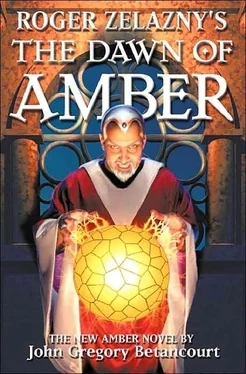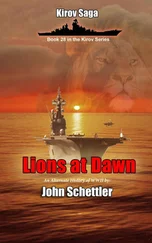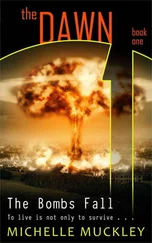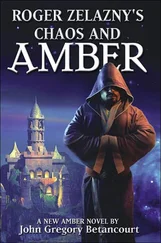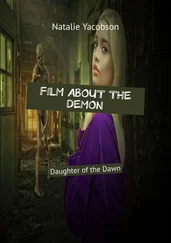Our front lines dropped to one knee, giving the archers room to aim.
“Fire!” I screamed.
They began to let loose their arrows, huge volleys of them. The front line of hell-creatures fell, but more swarmed from the trees in a seemingly endless black wave.
My archers continued to shoot, but there were too many of the hell-creatures. For every one that fell, five more took his place, advancing on us at a run. And then, behind them, I saw lines of hell-creatures on horseback making their way steadily toward us.
“Sound the call for the pikemen!” I said to the bugler, as their first men neared our lines.
He blew the call, and our archers dropped back. The line of pikemen rushed forward, screaming fierce battle cries. The archers raised their bows and fired over the pike-men’s heads, killing more of the hell-creatures to the rear.
“Hold some arrows back for their horses!” I shouted. “Aim for their mounts whenever you have a clear shot!”
Both sides met in the middle of the field, a huge writhing mass of bodies. From my vantage point on my horse’s back, I saw still more hell-creatures pouring from the forest, although there had to be tens of thousands already fighting.
Our archers kept firing as they found targets, but I held our horsemen back. Their mounts shifted impatiently, eager to charge.
“Steady… steady…” I murmured.
The battle slowly turned in the hell-creatures’ favor. Half my troops had fallen, and the remaining half seemed badly outnumbered. The archers had begun to fall back; they couldn’t pick out targets easily. I knew the time had come to send in my horsemen.
“Sound the charge,” I said, raising my sword.
To the wailing call of the horn, I spurred my own mount, and together with my two thousand cavalrymen, I rode into the battle.
It became a blur of slashing, hacking, and chopping. Around me, I saw horses and riders from both sides pulled down and then hacked to bits. Still I fought on, my sword a blur as I killed hell-creatures by the dozen. Soldiers began to rally around me, and together we cut a wide swathe through the enemy’s lines. I screamed my war-cry and rode, smeared in blood and gore, fighting as I had never fought before, taking a wild joy in the feel of metal slicing through armor and flesh, of killing those who had destroyed my life and my love and my home.
Suddenly, it was over. I heard the wail of enemy horns, and the hell-creatures turned and began their retreat. Archers fired at their backs, taking down dozens, then hundreds more. The men around me began to cheer.
I sagged in my saddle, grinning madly, exhausted beyond words. As I turned, taking in the battlefield, I saw bodies everywhere, human and hell-creature alike, piled three and four deep in places.
My arms trembled. My head ached. I had never felt so tired before in my entire life.
And yet I felt a wild elation—it had been a victory of epic proportion. Although two-thirds of my men had fallen, dead or wounded, we had still won the battle. And we had killed twice as many of them as they had killed of us.
“ O-ber-on! O-ber-on! O-ber-on! ” The men began to chant my name.
I raised my sword and sat up straight in my saddle. “Back to camp!” I cried. “Carry the wounded and our dead!”
Still cheering, they fanned out across the battlefield, looking for human survivors, killing whatever hell-creatures still lived.
There would be no prisoners in this war, I thought.
By the time we started back toward camp, scouts had ridden out to get a report and tell me what had happened. Their news wasn’t good. Although Locke’s men had ultimately carried the day, Locke had been badly wounded, dragged from his saddle, and left for dead by the hell-creatures. His men had carried him back to his tent, where physicians now tended him.
That was the good news.
Davin’s men had lost their battle. Davin hadn’t made it back. He lay lost somewhere on the battlefield, amid the corpses of eighteen thousand other men.
I left my horse and hurried to see Locke. I pushed past the physicians, ignoring their pleas to let the general rest, and knelt at the side of his cot.
Although they had bandaged his head, blood had already soaked through the bandages.
“Locke,” I said, “it’s me.”
His eyes flickered and opened. Slowly he turned his head toward me, though I could tell it pained him greatly to do so.
“What news?” he croaked.
“We won,” I said. “At least for today.”
He smiled a bit, and then he died.
Taking a deep breath, I reached out, shut his eyes, and stood. Priests hurried forward and began to say their prayers, getting his body ready for burial. I’d have to ask Freda what we did with our family’s dead, I thought distantly.
“Send runners if the enemy moves on us again,” I told Locke’s aides. “I must tell our father.”
“Yes, General,” they said to me.
Slowly I turned and walked out into the open. Officers called to me for news of Locke, but I ignored them.
With a heavy heart, ignoring the lightning that once again struck the castle walls, I began the long walk back. It would be dark soon, I thought. The attack would cease. I would go in and let them know what had happened.
It wasn’t a duty I looked forward to.
The two guards at Dworkin’s door had been replaced, I noticed as I approached. They snapped to attention, but made no move to stop me.
I went past them and entered my father’s workshop without knocking.
He took one look at my face, then sagged into a chair.
“The news is bad,” he said flatly, “isn’t it.”
“Davin and Locke are dead,” I told him. “But we won the day.”
“And tomorrow?”
“Tomorrow,” I said, “I will lead the men. We will fight and hope for the best.”
“Will you tell Freda?” he asked.
“Yes,” I said, and without another word I turned and left.
I ran into Aber first and paused to tell him the news, but he didn’t seem surprised.
“I told you Locke wasn’t a traitor,” he said.
“No,” I agreed, “he wasn’t. He may well have been the best of us all. I have to tell Freda. I promised Dad.”
“She’s taken over the little room off the audience hall. She won’t come out. I’ve tried all day.”
“What’s she doing?”
“I don’t know.”
I sighed, rose. ‘I’ll go talk to her,” I said. One more unpleasant task on top of an unpleasant day, I thought.
I went to the audience hall, but when I tried the door to the little room, it had been locked from the inside.
“Freda,” I called, knocking. “Let me in.”
She didn’t answer.
“Freda?” I called. “It’s me, Oberon, Open up, will you? It’s important. Freda!”
I heard bolts sliding, and then the door opened a foot—enough for me to slip inside. She closed it and locked it behind me.
“You should not have come,” she said.
She looked terrible, face pinched and drawn, cheeks gray, hair a disheveled mess.
“Aber is worried about you.”
“Worried about me?” She gave a laugh. “I am the least of anyone’s worries. The end has come. We are trapped. We will die here.”
“You’ve seen this in your cards?” I nodded toward the deck of Trumps scattered across the table, on top of Dworkin’s maps.
“No. I cannot see anything.”
I glanced at the two small windows set high in the wall. She had drawn the curtains, hiding the clouds and the incessant flicker of that odd blue lightning.
“There is an old saying,” I said. “Where there’s life, there’s hope.”
“It is not true.” She gestured at the table in the center of the room. Several candles, burnt down almost to nubs, showed her Trumps laid down in rows. “The patterns are random, without meaning. We will all die. We cannot survive without the Logrus.”
Читать дальше
